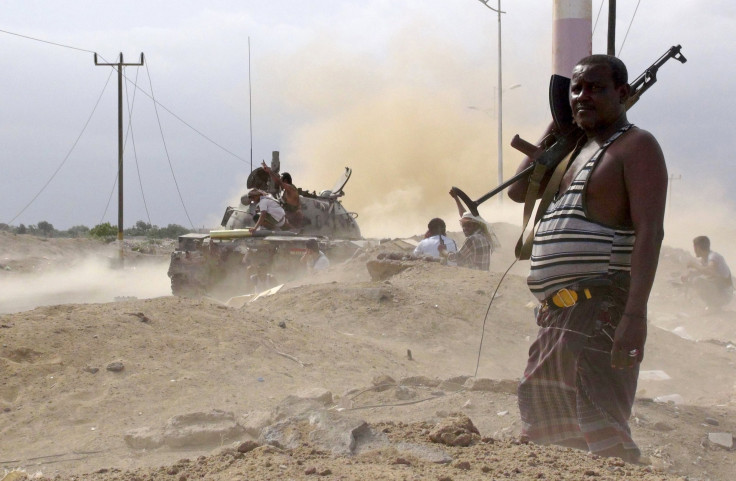Yemen Peace Talks To Resume In June, UN Secretary-General Ban Ki-Moon Says

Peace negotiations between representatives of Yemen's exiled president and the country's Shiite Houthi rebels are to resume in Geneva June 14, United Nations Secretary-General Ban Ki-Moon announced Saturday. A U.N. representative said in a statement Ban welcomed the talks and that the organization hoped they would be conducted "in good faith and without preconditions."
Ban said he hoped the meetings in Switzerland will restart "a peaceful, orderly, inclusive and Yemeni-led transition process,” as he renewed his call for another humanitarian pause in hostilities so aid could reach hundreds of thousands of Yemenis caught up in the conflict. Ban said such a pause could enable a “more conducive for peaceful dialogue” at the negotiations.
Even as this fresh hope for peace was being announced, however, fighting on the ground in Yemen intensified. Saudi Arabia announced Saturday that its Patriot missile-defense system intercepted a Scud missile fired by Houthi rebels, the first time such a weapon has been used in the conflict's current phase, which began March 22. And forces loyal to ex-President Ali Abdullah Saleh and Houthi rebels joined to launch a ground offensive Friday that was described as one of the largest attacks seen in the past 10 weeks.
According to the official Saudi Press Agency, the Soviet-made Scud missile was fired in the direction of the country's southwestern city of Khamis Mushait. The agency blamed the missile launch on forces loyal to Saleh and Houthi rebels.
"Praise God, we have air-defense forces capable of blocking these kinds of rockets, destroying them and thwarting attempts like this," Saudi Brig. Gen. Ahmed Asseri said.
Before its March broadening, the Yemeni conflict was a civil war, with one side consisting of southern separatists and forces loyal to now-exiled President Abed Rabbo Mansour Hadi and the other side made up of Houthi rebels and forces loyal to Saleh. Since then, the war has widened with a military intervention by a Saudi Arabia-led coalition of Arab and African countries.
© Copyright IBTimes 2025. All rights reserved.






















